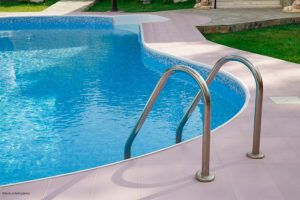Cryptosporidium is a frequent source of waterpark and pool outbreaks according to a new report from the Centers for Disease Control and Prevention (CDC). Cryptosporidium is a parasite that causes watery diarrhea, cramps, nausea and other symptoms that last for 10 days.
 The report looked at waterborne outbreaks reported from 32 states and Puerto Rico in 2011 and 2012. During that time period, 90 treated recreational water outbreaks that caused 1, 788 illnesses, 95 hospitalizations and one death were reported.
The report looked at waterborne outbreaks reported from 32 states and Puerto Rico in 2011 and 2012. During that time period, 90 treated recreational water outbreaks that caused 1, 788 illnesses, 95 hospitalizations and one death were reported.
Recreational water outbreaks happen when contaminated water is accidentally ingested. The source was determined in 73 of the outbreaks. Of those, 37 were caused by Cryptosporidium, a parasite that can survive CDC-recommended chlorine levels and is not trapped in filters. The settings for these outbreaks included hotels, spas, pools and waterparks.
There were also 21 outbreaks associated with untreated recreational water. These outbreaks sickened 479 people, hospitalizing 22 of them. Just one of these outbreaks was caused by Cryptosporidium. Seven of these outbreaks were caused by E. coli O157:H7 or E.coli O111.
To protect yourself from illness while enjoying time on the water, the CDC recommends the following tips: shower before swimming or using the water park, don’t swim if you have diarrhea, don’t swallow water, take kids on bathroom breaks, make sure everyone gets out of the water once an hour, check diapers frequently and change them in the bathroom or changing area away from the pool.




